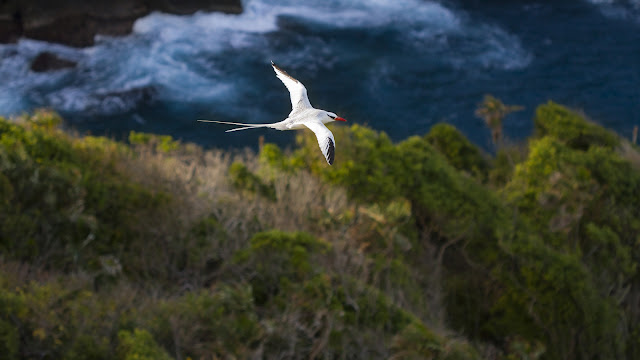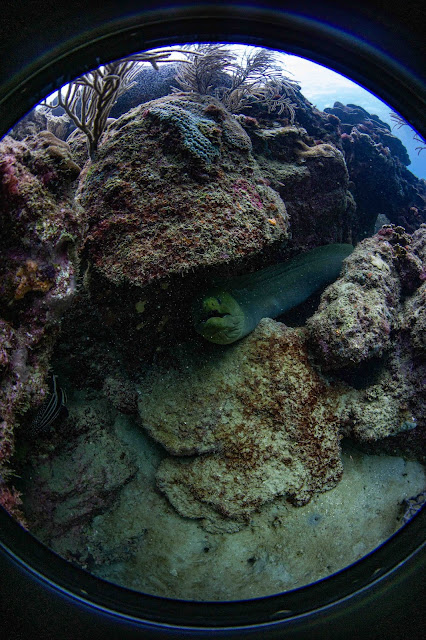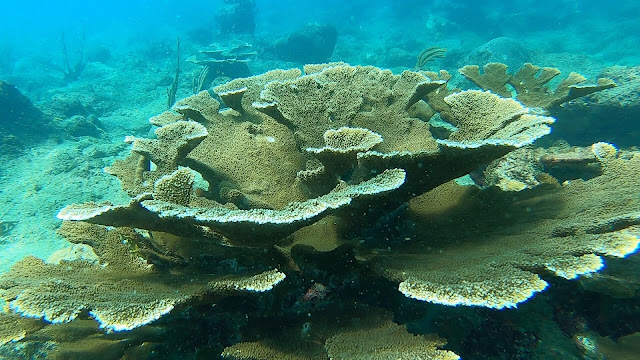The Dogs of Charlotteville
Pat Ganase looks at two short films by Elspeth Duncan (published in the Trinidad and Tobago Newsday, November 24, 2025)
For as long as I’ve been coming to Charlotteville – over 30 years now – there have been dogs in this village. We call them strays (even when they wore collars) pothongs or more caustically shithongs.
Amazingly, they are never fierce. Even when we brought our own pup – Jet – on one of our first trips, he was not barked at, attacked or lured away.
Around the Man-o-War Bay cottages, we feed them our scraps and bones. Most of the dogs that come around or sleep in the crawl space below the cottages are well-mannered and patient. They don’t need to speak for us to understand them. “We are here to welcome and look after you while you visit,” as they join us on the beach or the road. And in the casual way of vacations, we are friends for the while.
In recent years, we see the same dogs, the ones we called Max, Toby, Dusty, giving them names certain that they belong to homes in the village and have other names. We are never under any illusion or obligation of ownership, but glad that they are there to eat leftovers in our space.
In Charlotteville, we are as happy to see these doggies as we are to see the pelicans and magnificent frigatebirds, to hear the oropendolas and cockricos. But in Charlotteville, we are visitors, and welcomed or tolerated, the vacation allows us to have time and the wherewithal to befriend dogs as well as humans.
There’s another side to a dog’s life in Charlotteville. This is shown eloquently and graphically in Elspeth Duncan’s short film, Charlotteville Tails. As Elspeth explained, it started with a career fair in which she talked about film-making and the power of cameras – even on a cellphone – to show others your view of the world. She proved it by making Charlotteville Tails allowing the children to shape the film in their village.

One of the dogs of Charlotteville Tails (still image from the film by Elspeth Duncan)
Elspeth’s passion, evolved through her friendship with the stray dog which she adopted and named Venus, is kindness to all creatures. She is speaking for Venus in her advocacy which steers the NGO Venus Doggess of Love. The film that emerged followed a few dogs that were starving, injured or scorned. The children in the film see maggots and screw worms removed; dogs being fed by kind strangers; some taken to the other end of the island for treatment; they sing and pray and raise funds for the safety and health of the dogs. At the end, Elspeth tells us sadly of the those that died or disappeared. She advocates for a vet clinic in this village where simple, sometimes rough, are the lives of dogs and humans.
The villagers of Charlotteville, like most communities around Trinidad and Tobago, are generally indifferent. Even those dogs that are owned and called pets, are often viewed as utilities: to bark when strangers approach the home, to be good guards, and in some instances, good hunters (“wild meat is $100 a pound…”).
Charlotteville Tails asks us to consider creatures – especially dogs, the species that evolved most intimately with humans – as kin, with the right to care and compassion. Studies have shown that dogs are evolving alongside humans for 30,000 years. More recent studies also speculate that dogs’ behaviours are rapidly changing to match modern humans.
The dogs of Charlotteville are certainly quick studies in dogs’ adaptability and survival. They jostle with the birds on the beach for fish discarded by fishermen and have retained their ability to dismantle and digest fish bones. Their facial expressions and demeanour elicit smiles and trust. They follow you from one end of the village to the beach, then disappear, to reappear after dinnertime.
Docile and easily trained, these Trinbagonian pothounds are often adopted and taken to new homes in countries on both sides of the Atlantic. As diverse as the people of Trinidad and Tobago, the Trini pothounds evolved from every breed introduced here. Alsatian, Akita, Belgian and German Shepherd, Labrador, Rottweiler, Dachshund, Terrier, Bulldog, Pitbull, Chihuahua, Fox Hound, Pomeranian, Pekinese, Husky, toute moon! All are in the gene pool. So the variety is complex, surprising and endless: characteristics captured by clay sculptor Bunty O’Connor in her annual collection of Trini Pothounds.
Elspeth Duncan’s intention is to use Charlotteville Tails to bring awareness and understanding, with the simple message, Be Kind to Animals. The film was completed in the first half of this year. It has already won awards at the TT Film Festival in September. She screened it recently at a fundraiser with the short film she produced earlier. Venus and Magnet is a poem in black and white film about her dog Venus who befriends a chick which is called Magnet; a loving legend is Elspeth’s label. Venus shows us a dog’s carefree life as companion and teacher and inspiration, every dog’s potential. Charlotteville Tails is the teaching tool. The two films belong together and should be seen widely in schools across Tobago and Trinidad.

Venus
and Magnet is the loving friendship of a dog and a chicken (still image from
the film by Elspeth Duncan).


